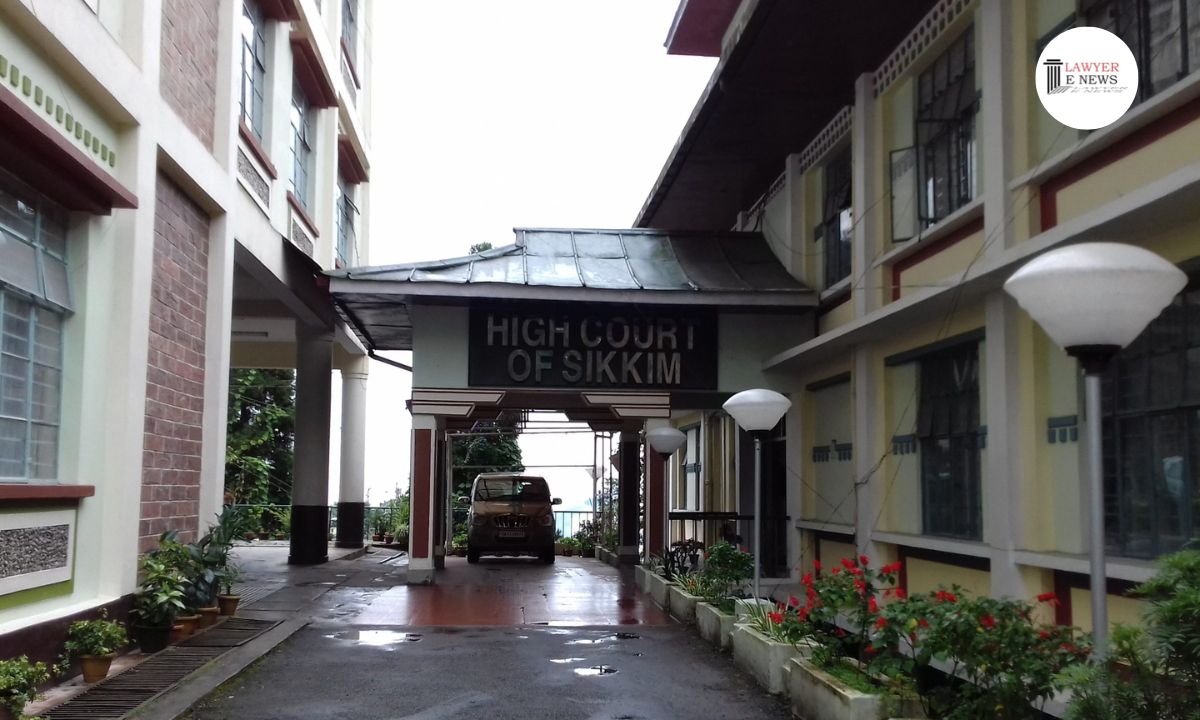-
by sayum
14 February 2026 2:22 PM



Conviction under POCSO Act sustained; Court highlights consistency of minor victim’s account despite minor discrepancies.
The High Court of Sikkim has upheld the conviction of Lendup Lepcha for aggravated penetrative sexual assault on a minor, affirming the lower court’s decision. The bench, comprising Justices Meenakshi Madan Rai and Bhaskar Raj Pradhan, emphasized the consistency and credibility of the victim’s testimony, corroborated by medical evidence and eyewitness accounts, despite the defense’s attempt to highlight contradictions and discrepancies.
Lendup Lepcha was convicted of aggravated penetrative sexual assault on a child below twelve years under Sections 5(m) and 5(l) of the Protection of Children from Sexual Offences (POCSO) Act, 2012. He was sentenced to twenty years of rigorous imprisonment with a fine of Rs. 30,000 for each offence. The case involved multiple incidents of sexual assault on the minor at various locations, including the victim’s own home and relatives’ residences. The conviction was based on the consistent testimony of the victim, supported by her mother’s eyewitness account and medical evidence, despite some minor discrepancies in the victim’s statements.
The court underscored the importance of the victim’s testimony in sexual assault cases, particularly when corroborated by other evidence. “The deposition of the victim is consistent with her statements. The minor discrepancies pointed out by the learned Senior Counsel between the victim’s statement and her deposition can be attributed to her tender age,” noted the court. The victim’s account was corroborated by her mother, who witnessed one of the assaults, and by medical evidence that confirmed previous sexual abuse.
The court highlighted the medical examination results, which supported the history of repeated sexual assaults. “The medical evidence supports the victim’s deposition of aggravated penetrative sexual assault by the appellant,” stated the judgment. Despite the absence of recent injuries, which was explained by the delay in examination and prior washing of evidence by the victim’s mother, the medical findings corroborated the victim’s narrative.
The court addressed the defense’s argument regarding contradictions in the victim’s statements under Section 164 Cr.P.C. and her court deposition. “The cross-examination by the defense yielded no evidence to demolish the victim’s deposition which satisfies the ingredients of aggravated penetrative sexual assault by the appellant,” the court observed. The victim’s mother’s eyewitness account and the corroborative testimonies of other witnesses, including the Childline Centre Coordinator, were deemed credible and consistent.
The judgment extensively discussed the principles of evaluating evidence in cases of sexual violence, reiterating that a conviction can be sustained based on the victim’s testimony alone if it is found to be reliable and trustworthy. “The victim’s statement is cogent and truthful. It is also corroborated by other prosecution evidence which leads us to believe that what she states is true,” the court asserted.
Justice Bhaskar Raj Pradhan remarked, “The victim’s deposition is of sterling quality in spite of her tender age and the corroborative medical evidence.”
The High Court’s decision to uphold the conviction under the POCSO Act underscores the judiciary’s commitment to addressing sexual crimes against minors. By affirming the lower court’s findings, the judgment sends a strong message about the reliability of victim testimonies and the supporting role of medical evidence. This decision is expected to reinforce the legal framework for protecting children from sexual offences and ensuring justice for victims.
Date of Decision: 17th June, 2024
